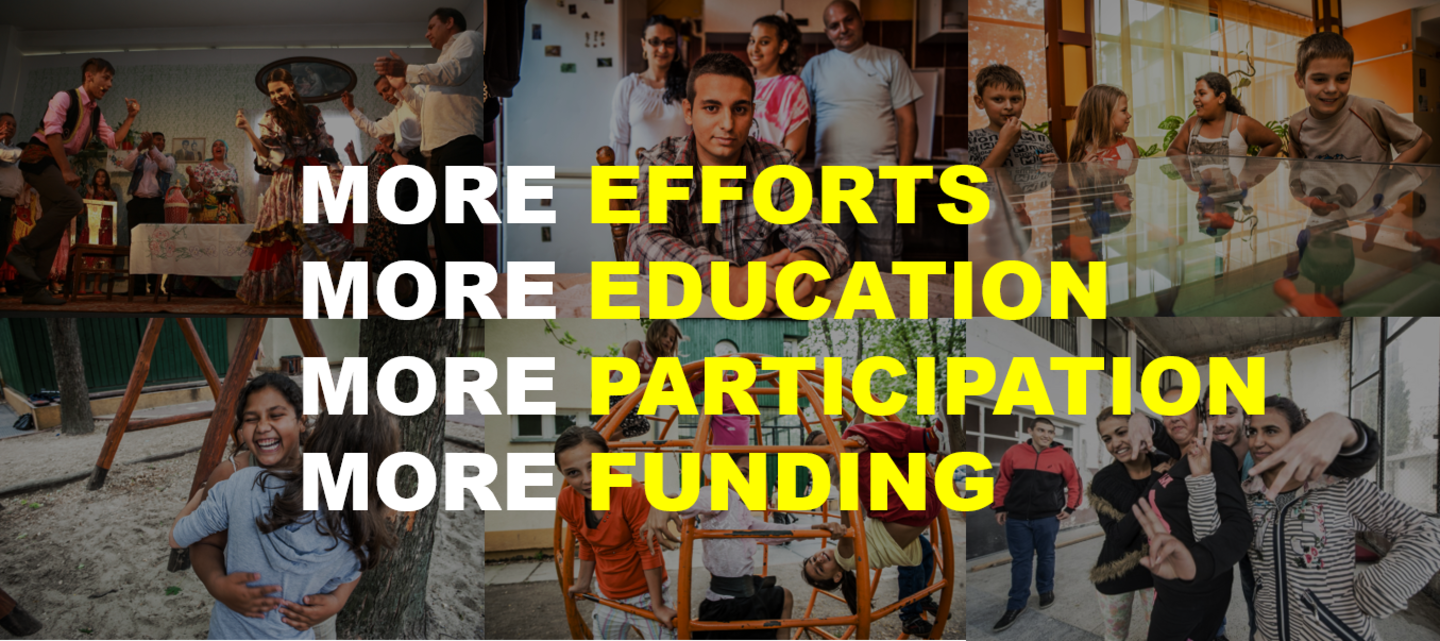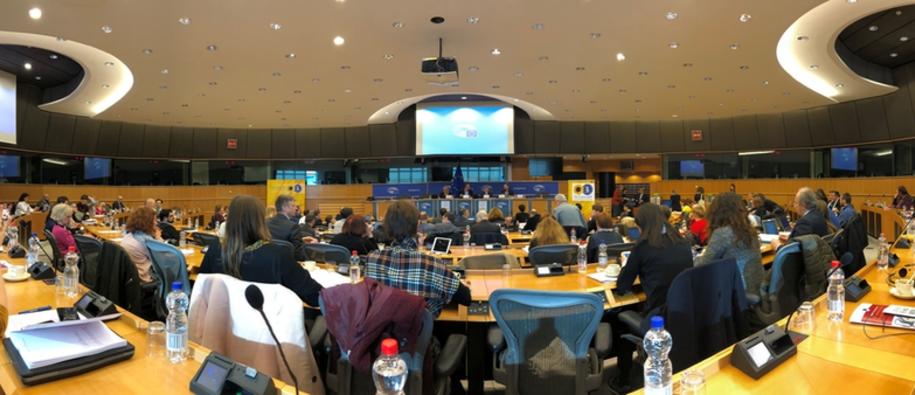Perhaps the most important development was the strong institutional focus on the problem of antigypsyism and its manifestations, including a dedicated event focusing on “truth and reconciliation” committees. This is important in acknowledging the complexity of some of the situations facing Roma communities, both in terms of poverty and socio-economic disadvantages, as well as discrimination and racism. Adding the element of antigypsyism as a “framing” of the challenges highlights how social inclusion intersects with discrimination, not just on an individual level but in structures and institutions as well.
There’s also a continued focus on inclusion as opposed to integration. Inclusion goes a step further - it is about belonging and both majority and minority communities learning from each other, not just assimilating. This means getting the same access to the same opportunities and rights as everyone else, learning to live together and getting a chance to truly belong.
"We have to invite Roma people to get to a better place
- to do things with them and not for them"
Commissioner Jourová at the EU Roma Week
Finally, we also talked a lot about what can be done to change the situation. During the event, I met and discussed with many different people, ranging from activists and civil society organisations, to representatives of international organisations, European institutions and Member State governments. What came out from our conversations is that improving the situation for the most deprived and marginalised Roma communities requires concrete efforts in a number of different areas, as well as changing deep-rooted prejudice and attitudes. In a nutshell, we need:
1. MORE EFFORTS
Governments, Civil society and all stakeholders must work together to combat growing antigypsyism and discrimination against Roma through target actions, awareness raising and community building.
2. MORE EDUCATION
More needs to be done to support inclusive education (in particular early childhood education and care) and tackle both segregation in education and housing, which have devastating consequences on Roma people’s lives, and further the trap of marginalisation, poverty and exclusion.
3. MORE PARTICIPATION
Roma should be encouraged and supported in processes of participation, both political participation as well as meaningful participation in projects and inclusion strategies, particularly at the local level, from their design, implementation and monitoring.
4. MORE FUNDING
There was a clearly expressed need for more flexible funding through e.g. small grants schemes to help facilitate access to funds of smaller NGOs and civil society organisations working for and with Roma. Capacity building of civil society is also needed to help them access funds.
The EU Roma week was a good reminder of what is truly at stake here. We’re talking about 10 to 12 million people in the EU - the Roma - facing intolerance, discrimination and high levels of deprivation and exclusion. We now have data that have shown the lack of progress over the years in key areas, which show that on average across the EU Member States with the largest Roma populations:
- One in three Roma is unemployed
- 90% are living below the poverty line
- Only 15% complete upper-secondary education
- One in two have experienced discrimination because of their ethnic background
I strongly believe that all European countries have a responsibility to address the exclusion and discrimination of the Roma. Making sure Roma are included requires strong and coordinated efforts across the board. That’s why Iceland, Liechtenstein and Norway have made improving the situation of the Roma a key priority.
By working together to protect their rights, make sure they have access to adequate education, employment, healthcare, housing and fight discrimination and antigypsyism, we can break the cycle of marginalisation and poverty.
Sheena Elaine Keller works as Senior Sector Officer at the EEA and Norway Grants, focusing on Roma inclusion and empowerment as a horizontal priority area.

